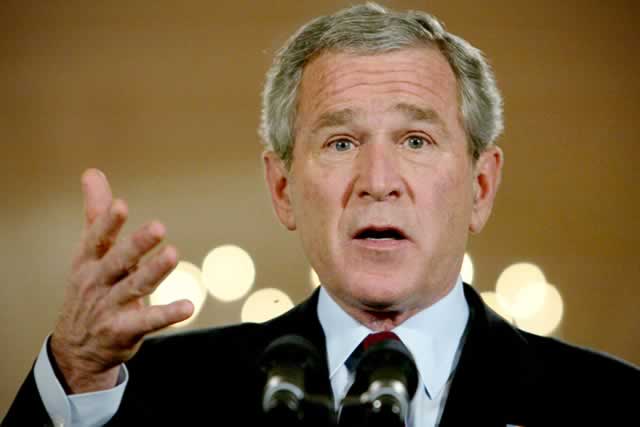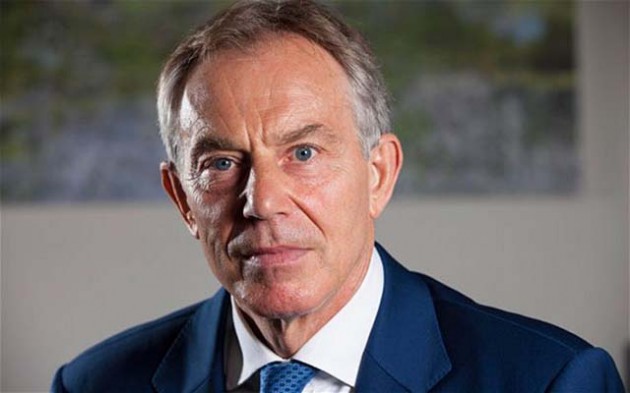A rare good act by America, perhaps?


George W. Bush
Tichaona Zindoga Political Editor
It’s a surprise — a big surprise. In March this year, the United States of America imposed sanctions on Chemplex Corporation and the Zimbabwe Fertiliser Company Limited whose mother entity, the Industrial Development Corporation, was already on the sanctions list. The companies are the biggest fertiliser manufacturers in the country.
Zimbabwe is an agro-based economy and when the measures were announced, one could not help the reality that America had decided to go further in attacking the economy of this poor Southern African nation already groaning under sanctions and other declared and undeclared measures since 2000.
There have always been those lies and subterfuge that US sanctions against Zimbabwe are “targeted” and merely prevent top Zanu-PF officials from travelling to America to do shopping, or stashing “ill-gotten” wealth there.
It is a lie that has long been discredited, especially when one points to the original inclusion of such institutions as Agribank, ZB Bank, Mines and Mineral Corporation of Zimbabwe, Zimbabwe Mining Development Corporation, ZiscoSteel, Zimre Holdings, etc.
However, the lie has had an incredible enduring staying power thanks to the propaganda of the private media and the opposition, who are, at any rate part of the four-pronged attack on Zimbabwe by America consisting of crippling the Government of Zimbabwe via sanctions; propping up the opposition; sponsoring the civil society and the media and distribution of “aid”.
But in March it was something so strange and brazen.
Putting the two companies under sanctions was as naked as any teeth-baring, tail-wagging evil could get.

Tony Blair
The sanctions would affect the whole agricultural sector and this especially applied to the poor and the poor of the poorest in the rural areas and farms whose livelihoods depends on agriculture with fertiliser being a key input.
Government was unhappy.
“We reject such brazen racism, and denounce this anti-life stance by the US Government. Government is exploring strategies of challenging this sinister decision by the American Government, while of course defending the gains of our Land Reform Programme which are now under renewed attack,” said
Information Minister Dr Christopher Mushohwe.
He was not done.
“Through this heinous act, the United States of America has decided to worsen things for our people, indeed has decided to target for attack the basic livelihoods of all Zimbabweans. It is hard to grasp how a country that prides itself as a responsible player and leader in global affairs can target a key humanitarian sector for attack,” he added.
He also situated the actions of the US on the background of the land reform programme which saw millions of Zimbabweans benefiting from the redistribution of arable land previously monopolised by no more than 6 000 white individuals of colonial stock.
The US bought into the bilateral tiff between Zimbabwe and the former colonial master and came up with a law called Zimbabwe Democracy and Economic Recovery Act whose spirit is enforce by annual renewable Executive Orders.
George W. Bush first signed Executive Order 13288 in 2003 “declaring a national emergency to deal with the unusual and extraordinary threat to US foreign policy posed by the situation in or in relation to Zimbabwe”.
There were subsequent executive orders in July 2004, November 2005 and July 2008 all to enforce sanctions on Zimbabwe.
March 2016, when the two fertiliser companies were listed was no different: the targeting of a key humanitarian sector for attack, as the Minister complained, was part of a grander plot to foment a humanitarian crisis in Zimbabwe that would lead to the forced stepping down of the Government of President Mugabe.
Yet, seven months later, we are in for a surprise.
The removal of Chemplex and ZFC from US’ hit list makes the two companies arguably some of the shortest ever fixtures on that dreaded list.
What informed America’s decision we cannot exactly tell — and we can also reveal that the action also involved the removal of ZB Bank and a couple of other now defunct banks; dead people, politically useless people and wives of some politicians.
The one possibility is that, for the first time the US saw reason and was genuinely embarrassed to include two fertiliser companies on its sanctions and hurting people, in a direct kind of way, at the same time claiming to care for people of Zimbabwe.
How, for example, would the US go about claiming that food it distributed through USAid was “a gift from the American people” yet the very same recipients have had their own livelihoods compromised by sanctions on fertiliser companies?
Ordinarily America, the shameless butcher of innocent civilians and destroyers of infrastructure in senseless wars abroad, carries no scruples.
Perhaps, just once, the US decided to have a skin to cover its ugly face.
How much can we count on the agency of the new ambassador to Zimbabwe Harry Thomas Jnr?

Harry Thomas Jnr
Let’s see him step forward to claim his prize!
It will be critical if the ambassador is such a force for good, which his predecessors have not been.
Instructively, Zimbabwe has not had any fight with the US and that the sanctions that US imposed on Zimbabwe were an overzealous show of “bromance” by George W. Bush to former UK premier Tony Blair during their disastrous tenures that jointly gave the world the disaster of the Iraqi war.
If the matter is about correction of historical injustices and imbalances as black people of Zimbabwe were colonised, dispossessed, exploited, raped and disenfranchised — which the present Government sought to correct — it will be critical for the US ambassador to understand the depth and continuum of the Zimbabwean question. The shallow, self serving claims about human rights, which yardstick is even selectively applied, mask the real issues.
It is trite to mention that while Zimbabwe has suffered immensely under the declared and undeclared sanctions with the sanctions costing billions of dollars and rolling development back to the 1950s, the US has not benefited from Zimbabwe’s malaise either.
There are genuine economic opportunities that the US has lost out on in resource-rich Zimbabwe and will continue to lose.
That is a fact.
On the other hand, while the US has been on in its unjust punishment of Zimbabwe it has only, but degraded itself in the process, not to mention how it has lost significant amounts of money to opposition, organisations and individuals in Zimbabwe.
That money could have been better used to improve the lives of its poor people back home, most of whom are black, Ambassador Harry Thomas Jnr’s colour.
It will be interesting to watch how relations between Zimbabwe and the US will pan out under the envoy’s watch.
The removal of Chemplex and ZFC is a significant marker.
It is to be hoped that this apparent rare good act by America is not just a fluke.









Comments